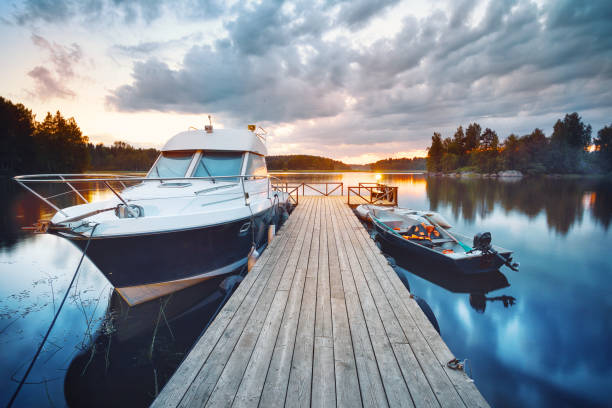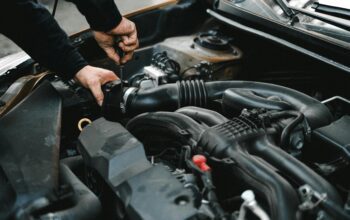Table of Contents
- Health Benefits of Recreational Boating
- Social Benefits of Boating
- Safety Practices Every Boater Should Know
- Essential Maintenance Tips for Your Boat
- Choosing the Right Boat for Your Needs
- Learning More About Boating
Key Takeaways
- Recreational boating offers numerous health and social benefits.
- Safety is paramount; understanding essential safety practices can save lives.
- Proper maintenance of your boat ensures longevity and peak performance.
Health Benefits of Recreational Boating
Spending time on the water can significantly reduce stress and improve overall well-being. This isn’t just anecdotal; there’s scientific backing for these claims. For instance, the combination of fresh air, sunshine, and the rhythmic motion of the waves contributes to a feeling of calm and reduces anxiety. Next time you think about your weekend plans, consider finding a Triton boat for sale to get started on your aquatic adventures.
A study in Boating Magazine highlights that being near or on the water can enhance mindfulness and presence. This leads to a not-so-surprising mental “reset,” many people crave in our fast-paced, digitally driven world. Moreover, activities like fishing, swimming, and even just cruising around can serve as low-impact exercises that improve physical health by keeping your body in motion.
Social Benefits of Boating
Boating provides an excellent opportunity to strengthen relationships. Whether it’s a family outing or a fishing trip with friends, the shared experience fosters closer bonds and creates lasting memories. When you’re out on the water, there are no distractions from screens or hectic schedules—just you, your loved ones, and nature. Organizing group boating trips can become a cherished tradition, and if you’re looking for the perfect vessel, many bass boats for sale offer ideal features for group outings. Bonding over activities like water sports, fishing, or simply floating and soaking up the sun can uniquely unite people. These experiences often become cherished stories to share, extending the joy of your time on the water far beyond the day itself.
Safety Practices Every Boater Should Know
Safety should always be a top priority when boating. Here are a few critical safety practices to keep in mind:
- Always wear a life jacket: This simple step can save lives, regardless of your swimming ability. Even the most experienced swimmers can face challenges in open water.
- Avoid alcohol consumption: Operating a boat while intoxicated is against the law and extremely risky. Alcohol can impact your equilibrium, coordination, and judgment, potentially resulting in catastrophic accidents.
- Stay informed about weather conditions: Abrupt weather fluctuations may lead to dangerous conditions. Always check the weather forecast before leaving and be ready to return if the conditions worsen.
- Regularly maintain your boat: Ensure all safety equipment, such as flares and fire extinguishers, is in good working order. Routine engine, electrical, and hull checks can prevent breakdowns and ensure a smoother trip.
The U.S. Coast Guard offers comprehensive safety guidelines that every boater should follow. Staying informed and prepared can be the difference between a great day on the water and a disastrous one. To handle emergencies effectively, carry a first-aid kit, a GPS device, and a two-way radio.
Essential Maintenance Tips for Your Boat
Consistent upkeep is essential for maintaining the optimal condition of your boat. Here’s a checklist to help you stay on track:
- Check the engine: Regularly inspect and service your boat’s engine to prevent breakdowns. Change the oil, inspect belts and hoses, and ensure the cooling system functions correctly.
- Clean the hull: Removing algae and barnacles from the hull will improve your boat’s efficiency and speed. Use appropriate cleaning products to ensure you do not damage the hull material.
- Inspect safety equipment: Ensure all life jackets, fire extinguishers, and other safety equipment are in good condition and accessible. Check flare expiration dates and replace any worn-out items.
- Check the electrical systems: Ensure that all lights, gauges, and navigational aids are functioning correctly. Faulty electrical systems can lead to failures at critical moments.
Routine checks and timely repairs can prevent costly damages and ensure a safe boating experience for you and your passengers. Schedule regular professional inspections and always follow the manufacturer’s recommendations for maintenance.
Choosing the Right Boat for Your Needs
With countless boat models available, picking the right one can be daunting. Here are a few factors to consider:
- Type of water: Are you planning to boat on a lake, river, or ocean? Different waters require different boats. For instance, a flat-bottom boat is ideal for calm, shallow waters, while a V-hull ship is better suited for rough, open waters.
- Activities: Are you interested in fishing, water sports, or leisurely cruising? Your choice of boat should match your intended activities. Fishing boats have specific features like rod holders and live wells, while sports boats are designed for speed and agility.
- Passenger capacity: Ensure the boat comfortably accommodates your family and friends. Overcrowding can lead to unsafe conditions and reduce the enjoyment of your outing.
Talking to experienced boaters or visiting a local boat dealership can provide valuable insights and help you make an informed decision. Take the time to test-drive a few models to see which feels right for you. Don’t hesitate to ask for advice, and consider renting before buying to ensure the boat meets your expectations.
Learning More About Boating
If you’re new to boating, consider taking a boating education course. Not only will it prepare you for a safe and enjoyable experience, but it’s also required in many states for operating a boat. The U.S. Coast Guard offers a directory of state-approved courses. Taking a course helps you understand navigation rules, emergency procedures, and the technical aspects of boat operation.
Boating offers a unique blend of relaxation, adventure, and social connection. By following safety guidelines, maintaining your boat, and choosing a suitable vessel, you can ensure many enjoyable outings on the water.




